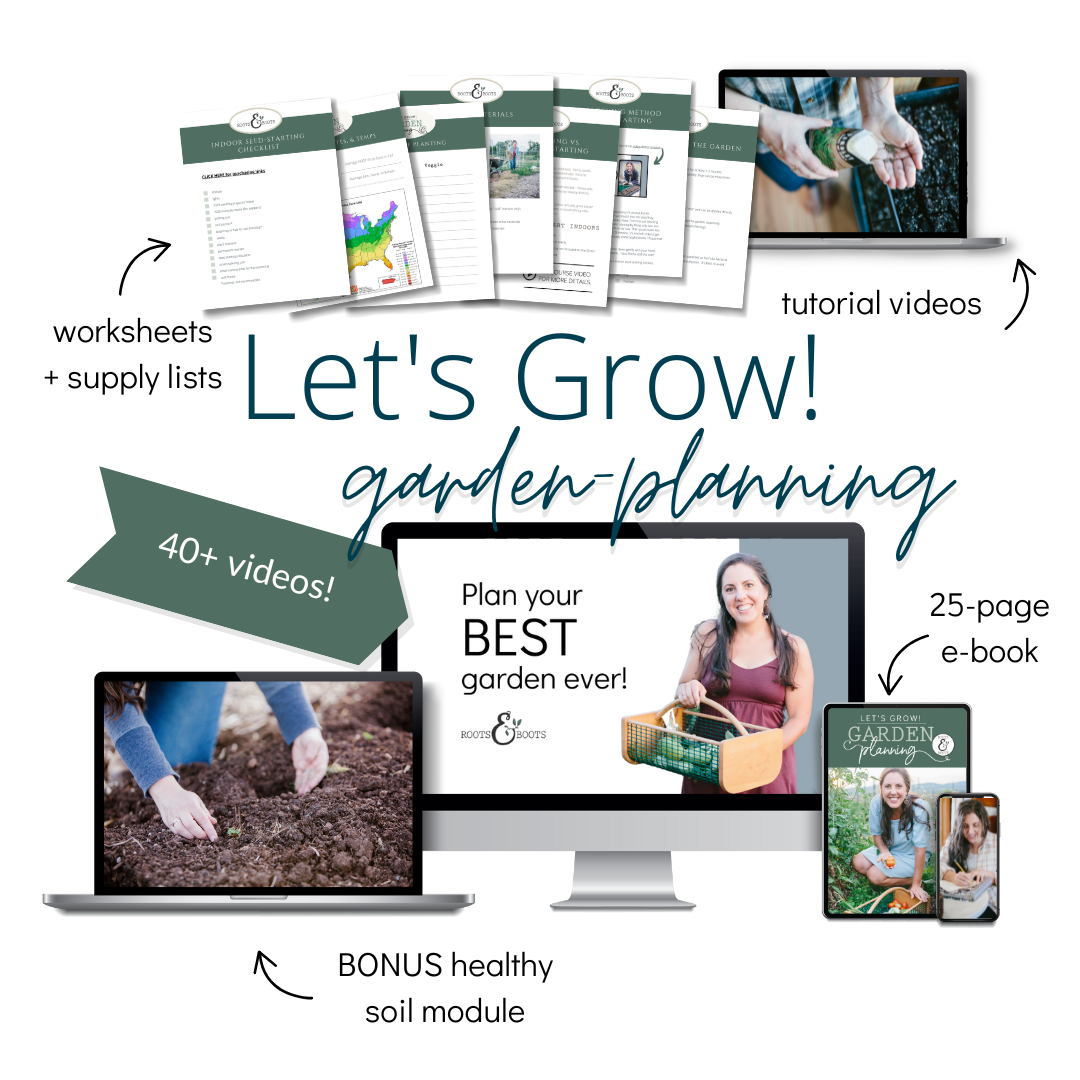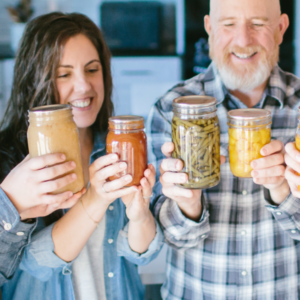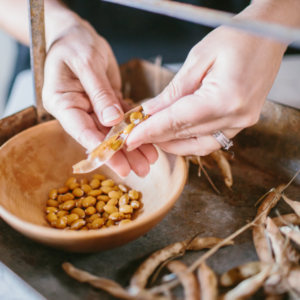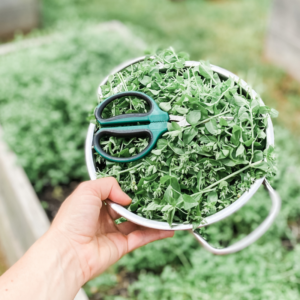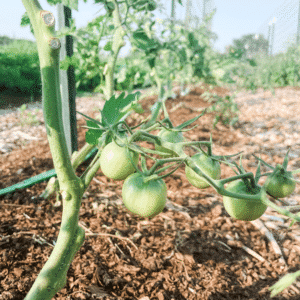10 Best Veggies for Beginning Gardeners
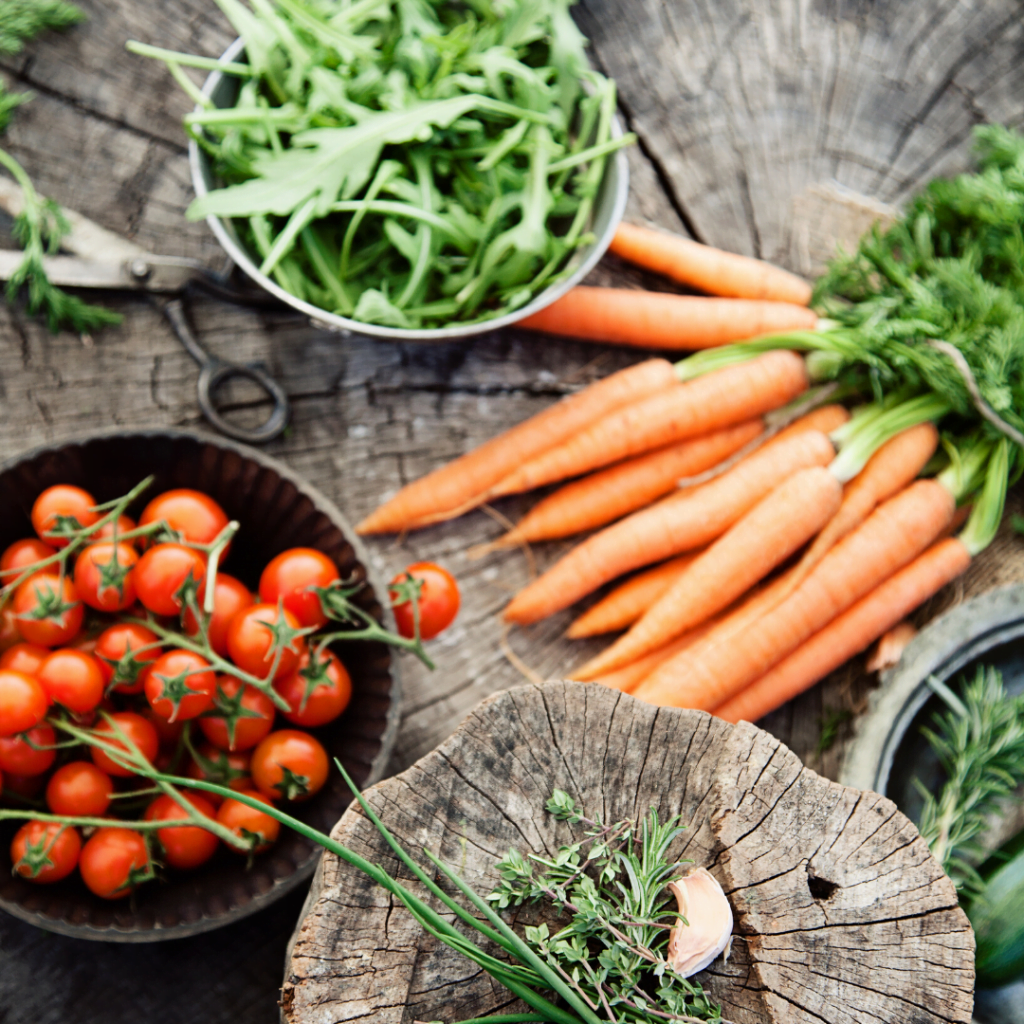
Plan your best garden with simple, step-by-step instructions!
This post may contain affiliate links, which means I make a small commission at no extra cost to you.
See my full disclosure here.
Victory gardens have made a comeback recently, as many folks started growing vegetables during the worldwide pandemic of 2020 and beyond. I love to see more people gardening and growing food! Let’s grow all the things!
However, some plants are easier to grow than others. You’ll have more success if you stick to some of the best veggies for beginning gardeners. Once you’ve got a bit of experience under your belt, you can add more advanced veggies to your garden.
10 Best Veggies for Beginning Gardeners
If you are a new gardener, I recommend starting with these foolproof vegetables…
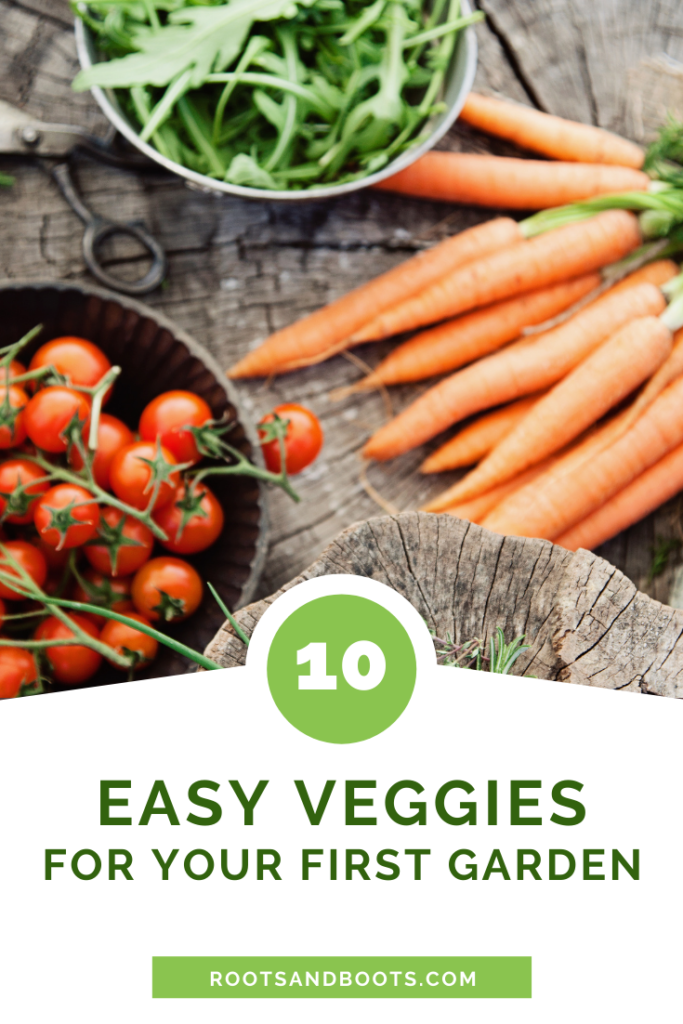
1. Lettuces
Salad greens are easy to start from seed in early spring, or you can purchase baby lettuce plants from the nursery. They prefer cool weather, performing best in spring and fall. During warmer weather, lettuces appreciate shade from neighboring plants.
2. Swiss Chard
My favorite of all the leafy greens! Grow from seed or transplants, and enjoy the beautiful colors and versatile green leaves.
Read more about growing and eating Swiss chard here.
3. Spinach
Another easy-to-grow leafy green. Like lettuce, spinach prefers cooler weather and grows best during spring and fall.
4. Peas
Peas are fun to grow! They are climbers, so give them something to scale: a trellis, fence, string, etc. Choose from garden peas (eat the small, round peas) or snap pea varieties (eat the pod and all).
5. Radishes
All root veggies are pretty easy to grow, but radishes mature so quickly that they’re perfect for beginning gardeners. They grow best in spring and fall. Sow radishes from seed directly in your garden.
Try my recipe for Honey Pickled Radishes.
6. Beets
Like radishes, beets are easy to grow and perfect for brand new gardeners. Bonus: eat the tops while you wait for the beet root to mature! Just be sure to leave at least a few leaves on each plant as they grow.
7. Carrots
Carrots are one root vegetable that I hesitate to include on a list of veggies for beginning gardeners. But they are such a popular vegetable, especially with kids, and they can be easy to grow given the right conditions.
Read more about growing carrots here.
8. Herbs
Every gardener should grow at least a few herbs. Fresh herbs add unbeatable flavor to your dinner table and a simple beauty to your garden. Most herbs are simple to grow, even from seed. New gardeners may want to start with purchased transplants. Choose from basil, thyme, parsley, chives, cilantro, oregano, sage, or rosemary.
Check out these 25 ways to use fresh basil.
9. Tomatoes
Have you ever seen a vegetable garden without tomatoes? I didn’t think so. Easy to grow and delicious to eat, tomatoes are perfect for beginning gardeners.
I’ve compiled my best tips for tomato growing and preserving here.
10. Green Beans
Be sure to tuck in some green bean plants to your new vegetable garden. I prefer bush bean varieties, but climbing varieties can also be fun. Sow them from seed, all summer long.
And then follow these instructions for canning your beans to enjoy all winter!

What about these veggies?
You may want to wait on the following vegetables, or at least adjust your expectations. Definitely give them a try, but you may want to read up on their particular challenges and be prepared to provide extra care.
1. Brassicas
The brassica family includes broccoli, cauliflower, cabbage, kale, turnips, rutabaga, and more. With the exception of kale and turnips, I have found brassicas particularly challenging to grow. They tend to need a long maturation period during cool weather, and they can have a lot of pest problems.
If you’re determined to grow plants from the brassica family, consider planting them in the fall.
2. Cucurbits
The cucurbit family includes squash, melons, gourds, cucumbers, and pumpkins. While these plants can be easy to grow, they also can be plagued by terrible problems with pests. Plants in the cucurbit family also tend to grow quite large and benefit from staking or support of some kind.
3. Peppers
Once again, peppers are often easy to grow and you should include them in your beginner vegetable garden. Just keep in mind that some varieties struggle to reach full maturity, and diseases can sometimes pose a challenge.
I recommend asking a local gardening friend or the staff at your favorite garden center for recommendations on varieties that do well in your area.
More about gardening:
- How to Start Seeds Indoors: A Simple Method
- DIY Straw Bale Cold Frame
- How to Harden Off Seedlings
- The Right Way to Plant Tomatoes
- 4 Secrets for Growing Better Carrots
Are you planting a garden this year? What will you grow?

Sign up NOW for my best tips delivered weekly to your inbox!
You’ll also get instant access to my library of free ebooks and resources.


